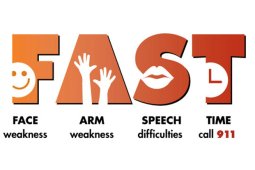Categories
- Bariatric Surgery (11)
- Black Fungus (5)
- Bone Marrow transplant (3)
- Brain Tumor Surgery Navigation Technology (20)
- Cardiac Surgery (66)
- Cardiology (97)
- Computer navigation technology for joint replacements (20)
- Covid Vaccination (17)
- Critical Care (2)
- Dental (19)
- Dermatology (31)
- Dialysis Support Group - “UTSAAH” (11)
- Dietitian (33)
- Emergency Medicine (4)
- Emotional Health (11)
- Endocrinology (33)
- ENT (20)
- Gastroenterology and GI Surgery (53)
- General and Laparoscopic Surgery (21)
- General Surgery (4)
- Gynecology & Obstetrics (183)
- Hematology (20)
- Internal Medicine (294)
- Kidney Transplant (50)
- Kidney Transplantation (20)
- Lung Cancer (8)
- Minimal Invasive Surgery (1)
- Mother & Child (20)
- mucormycosis (5)
- Nephrology (61)
- Neurology (147)
- Neurosurgery (68)
- Nutrition and Dietetics (107)
- Omicron Variant (1)
- Oncology (288)
- Ophthalmology (10)
- Orthopaedics & Joint Replacement (86)
- Paediatrics (59)
- Pediatric Nephrology (3)
- Physiotherapy (5)
- Plastic & Reconstructive Surgery (6)
- Psychiatry and Psychology (90)
- Psychologist (28)
- Pulmonology (72)
- Rheumatology (13)
- Spine Services (21)
- Transradial Angioplasty (16)
- Urology (84)
Query Form
Posted on Apr 19, 2022
Dietry Therapy in Brain Tumor?
If you are getting treated for brain tumor and are in the stage of post-surgery rehabilitation, it is best advised that you opt for a low carbohydrate diet. Most aggressive tumors (brain tumor cells) rely on glucose for growth & survival. According to a 2007 study Ketocal (high fat/low carb diet supplement) was used on mice to see the effect on brain tumors. Post the use of Ketocal there was reduction in the growth of intra-cerebral tumors observed by 65 & 35% in the ketocal groups. In fact, enhanced health & survival of the mice was observed in comparison to the controls.

Ketones are produced from fatty acid breakdown and are used for energy by the brain & heart in absence of carbohydrate. In such a situation through a low card diet, you can reduce brain damage and seizures.
Managing side effects of brain tumor with nutrition therapy
Throughout your brain cancer treatment, your care team will work with you to combat various side effects such as:
- Nausea:
- Bland foods are often tolerated better post surgery. Don’t opt for heavily salted or sugary food items and try to keep your meal simple.
- Opt for mashed potatoes, cottage cheese, cheese stick, applesauce, canned fruit in juice.
- You can also opt for soft vegetables (peas, cooked beans).
- You should also go for Ginger (added to tea, sweet potatoes or other foods). It may reduce nausea.
- Diarrhea: We may suggest a BRAT diet of bananas, white rice, applesauce, and toast to help reduce irritation to the digestive tract, and water soluble fiber supplements (e.g., pectin) to help form firmer stool.
- Constipation: To relieve constipation, our nutrition therapy team may recommend that you increase your fiber intake and stay hydrated, including drinking warm liquids (e.g., prune juice).
- Fatigue: We may suggest you try small, frequent meals of protein-rich foods, and decrease your sugar intake, to give you more energy.
- Conclusions:
- Keep your diet ‘clean’
- Eat lots of plant foods
- Choose organic when appropriate
- Limit animal and processed foods
- Avoid ‘extruded’ meats!
- Limit grilled and red meat
- Consider a ketogenic (low carbohydrate) diet
- Don’t smoke, limit alcohol, drink green tea!
- Exercise regularly



